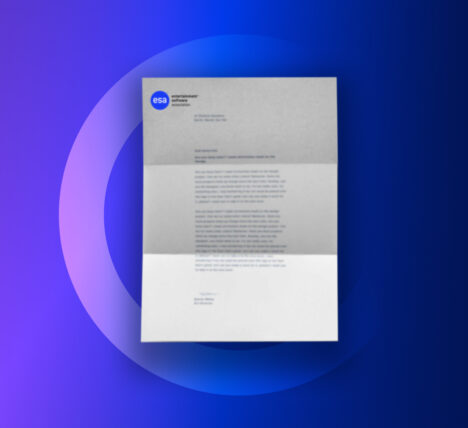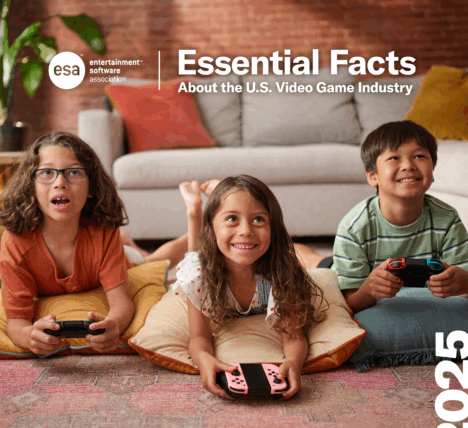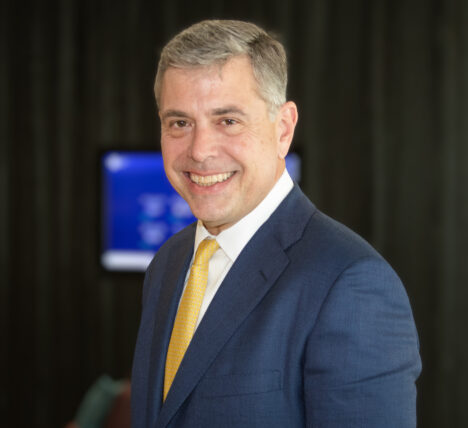A Q&A with Raashi Sikka, Ubisoft’s VP of Global Diversity, Inclusion & Accessibility
“I’ve always had a feeling of never truly belonging anywhere, which checkered my life growing up. So I was deliberate in creating inclusion for myself by creating inclusion for others,” says Raashi Sikka, who, in early 2021, joined Ubisoft as Vice President of Global Diversity, Inclusion & Accessibility (DIA). On the micro level, the then-newly created position is part of Ubisoft’s ongoing commitment to build an inclusive working environment. But on the macro level, it—as well as similar positions at other video game companies—reflects the industry’s efforts to further diversify workforces and the games they create.
After Raashi joined Ubisoft, she embarked on a journey to help create, structure, develop and strengthen its Employee Resource Group (ERG) program. Today, Ubisoft has seven global ERGs which have played an important role in shaping D&I initiatives. This is just one of the many achievements in advancing DIA across the company that are anchored around four strategic pillars: colleagues, culture, content and community.
To further their impact on their communities and the industry overall, Raashi and her team are working to ensure that Ubisoft represents the diversity of its players in its games. Ubisoft created the Inclusive Games and Content team to lead these efforts. The team develops and implements strategies and works with production teams to embed inclusion into the development process. It also supports initiatives such as the Content Review Group, which leverages the diverse perspectives of team members around the world to craft narratives that resonate with players from all walks of life.
We recently spoke with Raashi about her job and what led to her arriving at Ubisoft.
How did you come to specialize in diversity and inclusion?
As an employee early in my career, I noticed that there seemed to be an archetype of what “good talent” looked and sounded like. I, myself, didn’t fit that archetype, so when I joined a former employer’s talent team, it was with the goal of challenging that norm and broadening our definition of talent.
I then started playing an active role in building inclusion at that company through launching regional Employee Resource Groups, leading the Women’s ERG and playing an advisory role to leadership on the topic. In 2017, when the company decided to set up a D&I team, I had the opportunity to transition to that space.
How did your upbringing impact your dedication to diversity and inclusion?
My parents left India to move to the United States when I was a baby. They wanted to make sure I had a smooth upbringing, free from the bias and discrimination that they knew I could face as a first-generation Asian immigrant in the U.S. So, in my early years, I never learned Hindi or much about my Indian roots and culture.
It was a real cultural shock when we moved back to India, where I was suddenly surrounded by people who looked like me but didn’t sound like me, nor did we share common cultural references.
I’ve always had a feeling of never truly belonging anywhere, which checkered my life growing up. So, I was deliberate in creating inclusion for myself by creating inclusion for others. It is a part of my identity and how I navigate the world.
What are some of the diversity, inclusion and accessibility initiatives you are currently working on at Ubisoft?
We have several exciting projects that are about to launch. First up is our first-ever, global, self-identification program, where we will invite team members to share additional information voluntarily and confidentially about their identity, such as gender identity, race/ethnicity or disability. This information will help us to understand the experience of each person from a much more inclusive lens and allow us to take actions that truly support our colleagues.
We know we have room for growth when it comes to the representation of racial, ethnic, and cultural diversity, both within Ubisoft and the video game industry at large. With this in mind, we created a multi-year strategy called Project Rise to ensure that Ubisoft better reflects the diversity of our players, with a focus on racial, ethnic and cultural diversity. Over the course of the next five years, we will focus on three key areas: talent acquisition, internal talent development and external talent pipeline development.
We know that different people experience life and the workplace differently. There are different opportunities and barriers we all face. In the workplace, addressing barriers requires us to be specific, targeted and focused in our actions. At Ubisoft, we will be focusing on four key dimensions: gender equality, race and ethnicity, LGBTQIA+ inclusion and disability inclusion.
What about the games?
Over the past several months, we’ve been working with the recently created Inclusive Games and Content team to design a roadmap focused on ensuring that diversity and inclusion are at the heart of all our games. Thanks to our stellar accessibility team, we’re also continuing to work hard to make our games more accessible.
Right now, the team is focused on bringing an “accessibility by design” approach that embeds accessibility in our games from the earliest stages of development and ensures that more players can get the full experience of our universes.
Since you began with Ubisoft, where has the company made the most progress as relates to DIA?
A lot has been keeping us busy, but I’ll share a few highlights.
Gender equality is a priority at Ubisoft, both in terms of increasing the representation of women in the organization and supporting the development of women across different levels of leadership. Thanks to our talent acquisition teams and the investment of our HR leadership, women now represent 25% of our team members, up from 22% in 2020. A third of all hires over the last year were women. Additionally, we have 42% of women on our executive committee and 45% of women on our board.
Efforts to better reach out to neurodiverse communities are evolving, too. Last year, in partnership with HR, we created a dedicated neurodiversity program, which is designed to help recruit and support more neurodiverse talents so that Ubisoft will become the standard for neurodiverse inclusion at work in the coming years.
Our Global ERG leads meet with our CEO, Yves Guillemot, every quarter. This is a great forum for us to work together on areas of growth and progress, and for ERGs to share any potential concerns they have directly with Yves.
We also launched Advancing Inclusion this year, our flagship diversity and inclusion training program for two key cohorts—top leadership and HR leadership. It’s an in-depth program with opportunities to learn key concepts, put theory into practice and learn together and from each other.
Our team has been working alongside many game dev teams to continue to embed more inclusion and representation internally and in our games. Recently, we rolled out a pilot workshop in which production partnered with a dev team to explore the often-fine line between cultural appropriation and cultural appreciation. We’re excited to continue to build on this and roll out this and other workshops more broadly in the months to come.
For more about the advances both Raashi and Ubisoft are undertaking, check out the company’s Diversity and Inclusion page.




